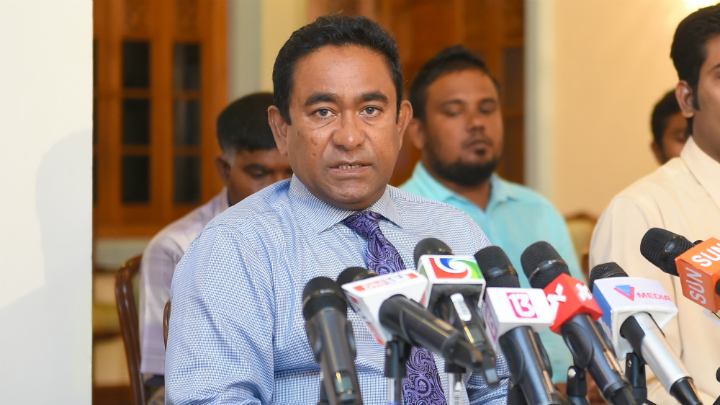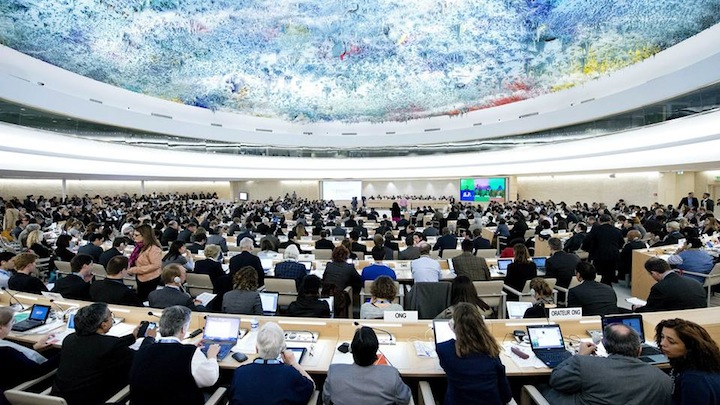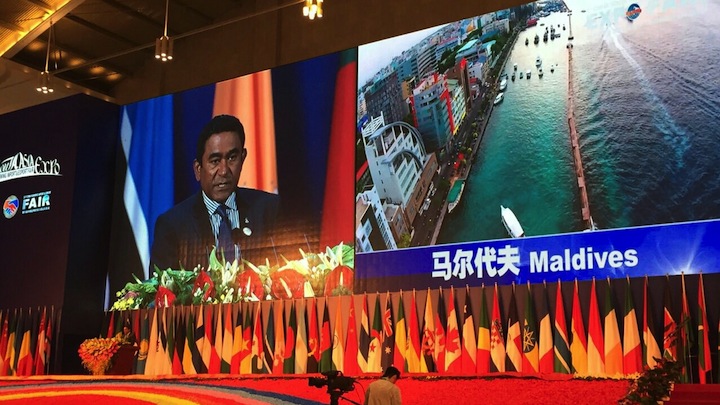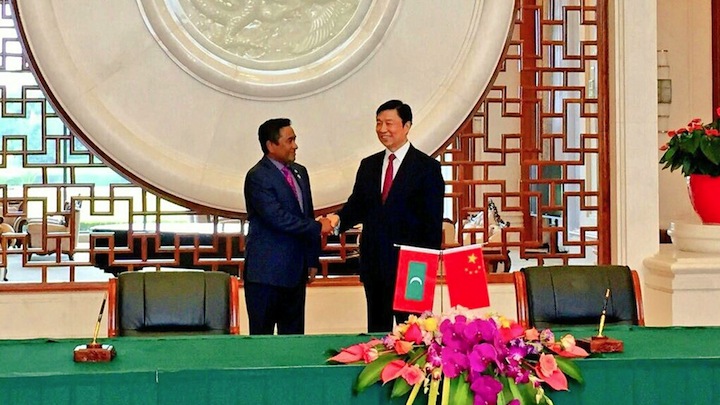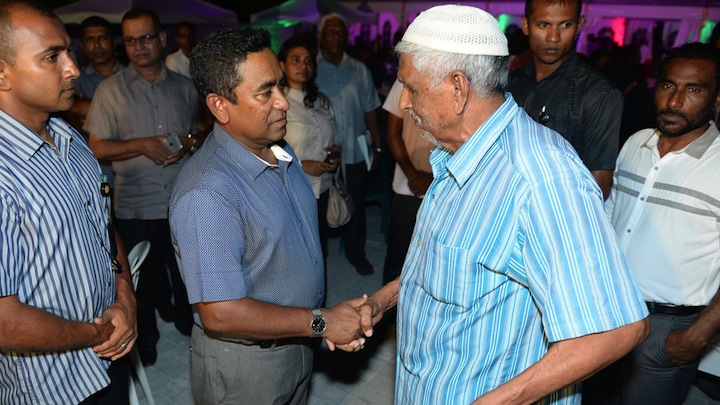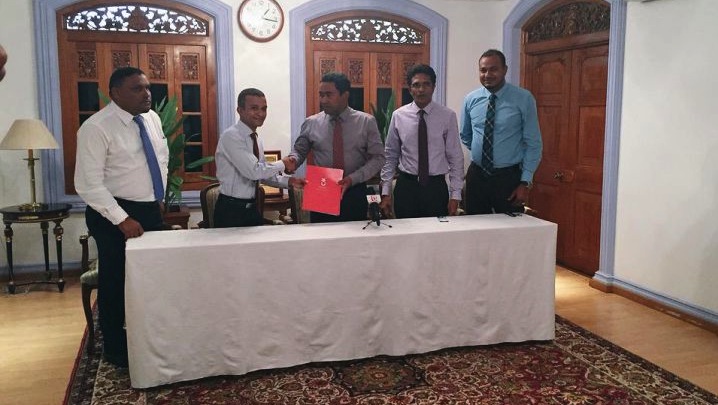President Abdulla Yameen has invited a UN team to the Maldives to help resolve the Maldives’ political crisis triggered by the imprisonment of ex-president Mohamed Nasheed.
In a phone call with UN Secretary General Ban Ki-moon on Tuesday, President Yameen asked for help “to cool down” the Maldives’ political crisis. Ban welcomed the offer, a statement by the foreign ministry said.
Nasheed, who is serving a 13-year-jail term on terrorism charges, was transferred to house arrest on Sunday for health reasons. His house arrest was extended by eight weeks, hours after the opposition parties announced they would support a government-backed constitutional amendment to set new age-limits to the presidency.
The amendment passed today with overwhelming bipartisan support.
International pressure has been mounting on the government to release Nasheed and other jailed opposition leaders. Ex-defence ministers Mohamed Nazim and Tholhath Ibrahim Kaleyfaanu were jailed in March.
Sheikh Imran Abdulla, the president of the Adhaalath Party, is in police custody until a trial on terrorism charges concludes. Two senior Jumhooree Party (JP) officials have fled the country days before terrorism charges were filed. JP leader and MP Gasim Ibrahim has been abroad since late-April in the wake of sanctions on his businesses.
President Yameen, however, told Ban there are no political prisoners in the Maldives. Jailed opposition politicians were convicted of criminal offences, he said.
He assured Ban that the government has opened doors for Nasheed’s Maldivian Democratic Party (MDP) to sit for talks without conditions, the foreign ministry statement said.
However, the President’s Office has previously ruled out negotiations over Nasheed and Nazim’s release and rejected representatives put forth by MDP and the religious conservative Adhaalath Party i.e. Nasheed and Imran, on the grounds that they are serving jail sentences or in police custody.
Discussions with Gasim’s JP, however, are ongoing.
President Yameen also told Ban he had rejected Nasheed’s appeal for clemency and asked the opposition leader to first exhaust all appeal processes.
Nasheed maintains the criminal court has blocked him from filing an appeal by failing to provide required court documents within the 10-day appeal period. Lawyers say the law is silent on late appeals and that there is now no mechanism to file an appeal.
The government, however, insists Nasheed can still appeal.
A New-Delhi based advocacy NGO, the Asian Center for Human Rights (ACHR), has meanwhile reiterated a call on the UN Human Rights Council to adopt a resolution on the deteriorating human rights situation in the Maldives in its ongoing session.
The NGO, which has special consultative status with the UN Economic and Social Council, on June 16 urged the UNHRC to appoint a Special Rapporteur on the human rights situation in the Maldives and to suspend the Maldives from the council.
The Maldives was first elected to the council in 2010 and re-elected for a second term in November 2013.
The ACHR said President Yameen has taken more draconian measures since its June 16 statement. It noted the Supreme Court had ruled a Human Rights Commission of the Maldives (HRCM) report to the UN unlawful and issued a 11-point guideline on the watchdog.
“The president of the UN Human Rights Council and the UN Human Rights Council ought to take necessary measures against such reprisals for cooperating with the United Nations human rights mechanisms,” the statement saud.
No other Supreme Court in the world has passed such restrictions on national human rights watchdogs for cooperating with the UN, the NGO said.
The ACHR also blamed government’s economic sanctions for Gasim’s announcement he will retire from politics and censured the government for hiring a UK based private law firm, chaired by Cherie Blair, the wife of ex-UK PM Tony Blair, to strengthen democracy consolidation.
“That the government of Maldives decided to hire a private law firm rather than seeking support of the United Nations for democratic reforms once again shows that President Yameen is not committed to democratic reform,” the ACHR said.
